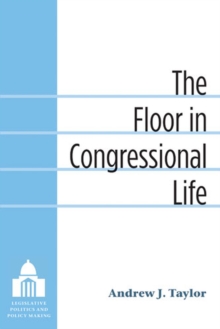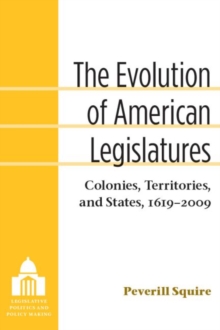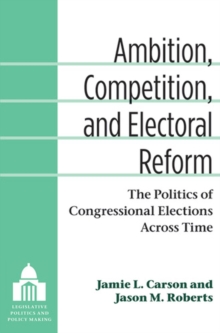
Partisan Gerrymandering and the Construction of American Democracy Paperback / softback
by Erik J. Engstrom
Part of the Legislative Politics and Policy Making series
Paperback / softback
- Information
Description
Erik J. Engstrom offers a historical perspective on the effects of gerrymandering on elections and party control of the U.S. national legislature. Aside from the requirements that districts be continuous and, after 1842, that each select only one representative, there were few restrictions on congressional districting.
Unrestrained, state legislators drew and redrew districts to suit their own partisan agendas.
With the rise of the "one-person, one-vote" doctrine and the implementation of the Voting Rights Act of 1965, however, redistricting became subject to court oversight. Engstrom evaluates the abundant cross-sectional and temporal variation in redistricting plans and their electoral results from all the states, from 1789 through the 1960s, to identify the causes and consequences of partisan redistricting.
His analysis reveals that districting practices across states and over time systematically affected the competitiveness of congressional elections, shaped the partisan composition of congressional delegations, and, on occasion, determined party control of the House of Representatives.
Information
-
Out of StockMore expected soonContact us for further information
- Format:Paperback / softback
- Pages:236 pages, 29 figures, 34 tables
- Publisher:The University of Michigan Press
- Publication Date:31/01/2016
- Category:
- ISBN:9780472036578
Other Formats
- Hardback from £54.45
Information
-
Out of StockMore expected soonContact us for further information
- Format:Paperback / softback
- Pages:236 pages, 29 figures, 34 tables
- Publisher:The University of Michigan Press
- Publication Date:31/01/2016
- Category:
- ISBN:9780472036578



